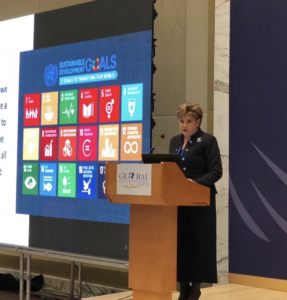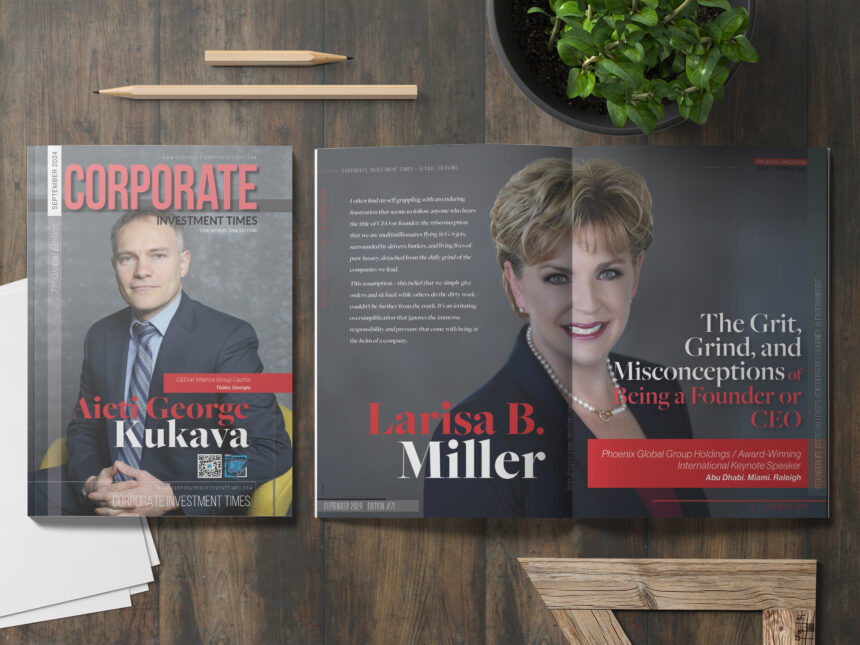I often find myself grappling with an enduring frustration that seems to follow anyone who bears the title of CEO or founder: the misconception that we are multimillionaires flying in G-6 jets, surrounded by drivers, butlers, and living lives of pure luxury, detached from the daily grind of the companies we lead.
This assumption—this belief that we simply give orders and sit back while others do the dirty work—couldn’t be further from the truth. It’s an irritating oversimplification that ignores the immense responsibility and pressure that come with being at the helm of a company.
Recently, for me personally, there has been an increase in requests for financial help, with people assuming that being a CEO means having an endless supply of money. It takes significant courage and discipline to say no, even when these requests come from friends, colleagues, or family members, because every decision must align with the long-term priorities of the business.
Perhaps one of the most frustrating aspects is the constant assumption that because we are visible, we are wealthy. The idea that we shouldn’t seek investment because “we have the money to invest on our own” is one I hear far too often. Why do you need investment? Why don’t you just fund this yourself? These questions show a deep misunderstanding of what it actually takes to grow and sustain a business. Yes, we seek investment not because we lack capital, but because growth requires strategic partnerships, additional resources, and careful stewardship of the capital we manage. Any wealth we’ve accumulated is often reinvested into the company to ensure its continued growth and long-term success.
As a tech founder with Phoenix Global Media Group, I’ve experienced firsthand how difficult it can be to circulate a first-of-its-kind concept for investment. Bringing a new, groundbreaking idea to life often requires bootstrapping, not only to preserve equity but also because many investors wait until the value and potential rewards are clear before they commit. While, once built, people can easily see the value of the platform, they often overlook the magnitude of the financial investment and sacrifice that went into bringing that concept to market. Changing this mindset—both for investors and founders—will better equip young entrepreneurs for the challenges of being a CEO, and provide a clearer understanding when it comes to weighing the pros and cons of outside investment. Founders must be prepared for the reality that success often requires taking on substantial personal risk and having the fortitude to navigate the difficult path of scaling an idea without over-relying on external funding.

And then, of course, there’s the assumption that we can, or should, loan, give, or donate money to every compelling project, cause, or person in need that comes our way. While there’s a genuine desire to help, we rise with the responsibility of overseeing the strategic growth of the company and ensuring its long-term success. That responsibility often means we have to say no. Saying no isn’t personal, nor is it a reflection of disinterest in the cause or the individual; rather, it’s a reflection of the difficult prioritization we must make as leaders.
As CEOs, we aren’t just making decisions for ourselves. We are analyzing, catalyzing, and executing strategies that impact the lives of every employee, every shareholder, and every stakeholder associated with the business. That means we must scrutinize every opportunity that comes our way and weigh it against the overall vision and health of the company. Every no is a calculated decision to maintain focus, keep the company moving forward, and protect the interests of the entire organization.
Through my experience working with family offices and businesses around the world, I’ve seen firsthand how demanding and exhausting it is to build a company from the ground up. According to the Small Business Administration (SBA), only about half of businesses survive past the five-year mark. Of those, a much smaller percentage will ever scale into significant enterprises. It’s not for lack of vision or drive, but because the sheer grind and fortitude it takes to be a CEO or founder are unparalleled. It is estimated that over 60% of entrepreneurs experience periods of depression, often because of the unrelenting pressure that comes with building a company, managing staff, staying competitive, and making financial sacrifices—all while many on the outside assume they’re living a “cushy” life.
The idea that we are “lucky” when we achieve a perceived level of success is also something I hear far too often. It’s easy to assume that CEOs who get to travel internationally for business or attend exclusive conferences are fortunate, but the reality is that such travel is rarely a luxury. It’s stressful, it’s lonely, and often you’re catching up on emails, preparing presentations, or worrying about the company’s next step while sitting in an airport lounge rather than enjoying the destination.

Success, if we reach it, isn’t the result of luck. It’s the result of years of hard work, sleepless nights, and sacrifices. We are constantly thinking about how to outpace competitors, manage the internal challenges of a growing company, and make strategic decisions that will affect not just our livelihood, but the livelihood of every person on our team. The weight of that responsibility is immense and often misunderstood.
When founders or executives seek investment for new projects or innovations, there is often a misunderstanding about why we’re asking for external funding. One of the most common refrains I hear is, “Why does he or she need money? Aren’t they rich enough to invest themselves?” What people don’t realize is that most of us are reinvesting in our businesses, constantly putting capital back into the company to fuel growth, research, and innovation. If I had a dime for every time someone presented a ‘can’t-lose’ investment opportunity, assuming I had unlimited personal resources, I could probably buy a private island.
In reality, being a successful entrepreneur or CEO means being a good steward of resources, and that often involves saying “no” to outside investment opportunities, regardless of how promising they seem. We have to prioritize. It’s about growing the company responsibly and ensuring its long-term success, rather than indulging in short-term luxuries. It’s choosing the future of your company over that Maserati or penthouse, because the reward of long-term success far outweighs the fleeting excitement of a new toy.
And make no mistake, this journey is lonely. The higher you climb, the fewer people understand the weight of your decisions. The sense of isolation is compounded by the fact that many people only see the external markers of success, not the immense personal and financial sacrifices behind it. It’s not cushy. It’s not easy. It is lonely, scary, and relentless. But for those of us who thrive in this environment, it’s also incredibly rewarding.
The life of a founder or CEO is not cushioned by a safety net of wealth or luck. It’s built on relentless determination, hard work, and a deep understanding that there will always be more sacrifices ahead. It’s being willing to continue grinding, even when others assume you’ve “made it.” It’s about investing in your company, your people, and your vision, while maintaining the discipline to say no to distractions, even the flashy ones.

For those who are new founders or just beginning their journey as business leaders, it’s important to understand that saying no is not only acceptable but often necessary. You do not need to feel guilty or apologetic for turning down opportunities, requests, or investments that don’t align with your company’s goals or financial strategy. Early in the entrepreneurial journey, there is immense pressure to say yes to everything—especially when someone presents a “can’t-miss” opportunity. However, not every proposal will be a good fit, and many “can’t-miss” opportunities come with significant risks that could jeopardize the long-term success of your business.
Founders must learn that part of building a sustainable company is exercising discernment. Saying no allows you to remain focused on what truly matters: growing your company with intention, managing your resources wisely, and staying aligned with your vision. Remember, every successful founder has had to make difficult decisions, and one of the hardest—but most critical—decisions is learning when to walk away. Protecting your business, your time, and your resources should always come first, even when it’s hard.
At the end of the day, it’s not about the Maseratis, the penthouses, or the accolades. It’s about building something that endures. And that takes more than luck—it takes grit, determination, resiliency and most of all, it takes courage – the courage to say NO.



